Project Name:
DBACC Stigma Intervention
Funding Dates:
Status:
Completed
Principal Investigators:
Wangari Tharao* (WHIWH & ACCHO), Mona Loutfy (Women's College Hospital), Carmen Logie (University of Toronto), Liviana Calzavara (University of Toronto)
Description:
This study systematically reviewed randomized controlled trials (RCTs), non-randomized observational and quasi-experimental studies evaluating the effectiveness of interventions aimed at reducing stigma experienced by this population.
Purpose and Objectives:
To conduct a systematic literature review to identify evidence-based practice interventions that have been proven or are promising in terms of effectiveness in reducing the multiple forms of S/D experienced by Diasporic Black, African, Caribbean and Canadian (DBACC) women living with HIV. Specific Objectives: 1. Critically appraise and summarize characteristics of each intervention to capture the relevant information including: a) components of the intervention (e.g. individual counselling), b) participant characteristics (e.g. age), c) duration and frequency of intervention, d) geographical location of intervention (e.g. rural/urban, country), e) type of stigma/discrimination addressed (e.g. racism), f) outcomes measured (e.g. depression), and g) extent to which its impact is proven by researchers and/or its perceived effectiveness among participants. 2. Identify the level at which each intervention is operating: individual (e.g. counselling), group (e.g. social support), community (e.g. mass media campaign), and structural/institutional levels (e.g. advocacy, policy change) or across multiple levels. 3. Assess outcome measures of identified interventions including: S/D (e.g. racism, sexism, HIV-related stigma); well-being (e.g. social support, mental health, life satisfaction, quality of life); and self-efficacy (e.g. resilient coping). 4. Create a document that identifies common themes and distinct features of interventions that are promising and can be piloted or modified to meet the needs of DBACC WLWH.
Method:
Systematic literature review
Population:
ACB women living with HIV
Region:
United States & Canada
Start and End Date:
N/A
Results:
Of the five studies that met criteria for inclusion, three reported findings from RCTs [61,62,64], and two studies were prospective cohort studies [63,65]. All of the studies included in this review were conducted in the United States. All five of the included studies reported on the effectiveness of interventions where stigma reduction was an expected outcome. Abel et al. [62] and Abel [61] evaluated the efficacy of an Emotional Writing Disclosure (EWD) intervention for women with HIV; EWD is a cognitive intervention designed to foster the reframing of traumatic events such as the traumatic impact of stigma/discrimination in order to reduce the negative thoughts and emotions associated with such events. Hosek et al. [63] evaluated Project ACCEPT (Adolescents Coping, Connecting, Empowering and Protecting Together), a behavioural intervention guided by social cognitive theory that was designed to enhance HIV-knowledge, coping, social support and psychological skills building of youth recently diagnosed with HIV. Miles et al. [64] evaluated the effectiveness of a maternal HIV self-care symptoms management intervention designed to improve HIV-related knowledge, reduce emotional distress and to promote self-care and care seeking strategies, among low-income African-American mothers with HIV. Rao et al. [65] evaluated the African American adaptation of the HIV stigma toolkit, a stigma reduction intervention originally developed by the International Centre for Research on Women (ICRW). The African-American adaptation of the intervention incorporated participatory educational exercises designed to counter misinformation around HIV, raise awareness of HIV-related stigma and develop skills to addressing stigmatizing situations within one’s daily life. All five included studies reported stigma outcomes. Four studies measured perceived HIV stigma (i.e. awareness of social devaluation, social rejection, diminished social identity and limited social opportunity attributed to stigma) [6164]. One study measured internalized stigma (i.e. holding negative views of oneself) [65]. Three studies measured outcomes of well-being including depressive symptomology [62, 64], health-related quality of life [62, 64], health distress [64], number of infections [64] and mood and affective state [64]. One study measured self-efficacy outcomes including disclosure self-efficacy, sexual discussion self-efficacy and coping [63]. Other outcomes that were measured were cognitive reorganization [61,62], HIV symptomology [62], adherence behaviours [62], side effects from antiretroviral drugs [62] and HIV/AIDS knowledge [63]. Findings on physical and mental well-being post-intervention were mixed. Four studies demonstrated that their interventions had a positive effect on reducing HIV-related stigma in women living with HIV. These findings indicate that stigma reducing interventions can be of benefit for African/Black diasporic women with HIV.
Project Indicators and Outcomes:
Funding Sources:
CIHR Social Research Centre in HIV Prevention (SRC)

